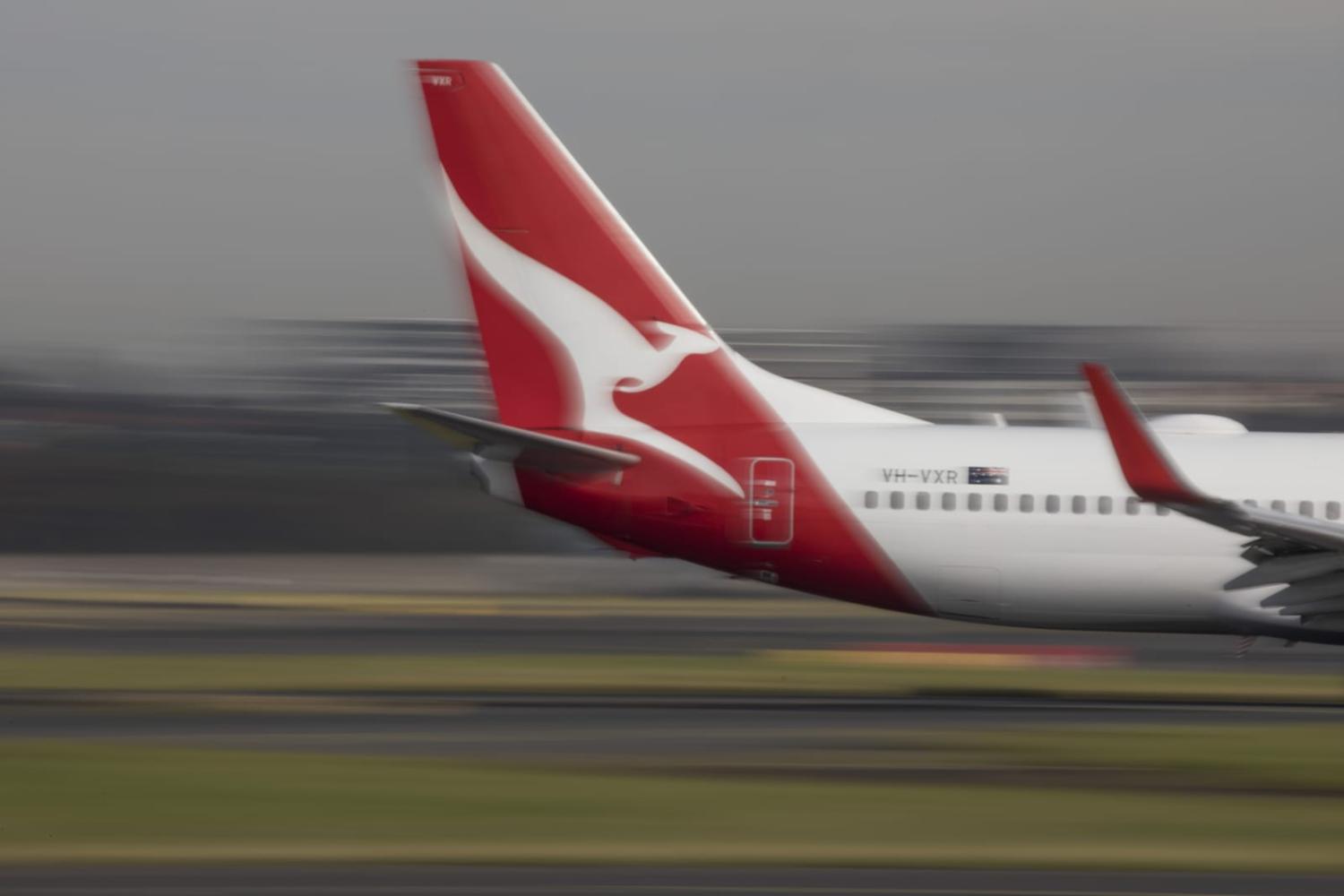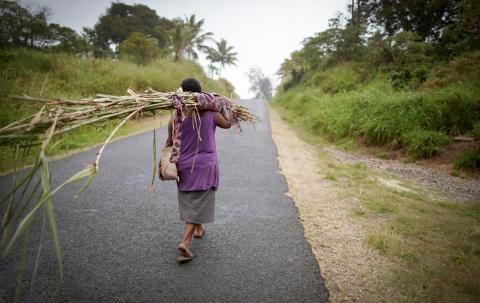Guns AND butter
The release of Australia’s new development aid policy earlier this month has been mostly welcomed as the latest move in the Albanese government’s effort to craft a whole of government – or indeed nation – approach to national security.
While this was underway in the previous government, the tempo has clearly stepped up, from the Defence Strategic Review backing more support for diplomacy to the talk in the latest budget of “investing in all elements of our statecraft”. Now the aid policy is characterised as “using all elements of our national power to advance our interests”.
But defence, diplomacy, and development all still ultimately compete for funding from a budget in long term deficit, despite the new Triple Entente amongst the once mutually suspicious three Ds of international relations.
So, what perhaps deserves more attention are the parallel moves to underpin national security (and indeed actually ultimately fund the Entente) with some of the other arms of government regulatory and fiscal power.
Picking winners
The curious position of Qantas as a ruthlessly run privately owned business but still the once government-owned de facto national carrier in times of crisis has this week started to look more like another element of statecraft.
The decision to reject increased landing slots for Qatar Airways on the route to Europe and so create more competition for Qantas has descended into farce as the government stumbles through a changing parade of justifications from protecting jobs to encouraging Qatar to fly to smaller airports than Sydney and Melbourne.
Now the reliable refuge of national interest is being used to explain why initial plans to cut airfares during a cost-of-living crisis were over-ruled by more senior figures in the government. Indeed, Qantas – the self-titled “Spirit of Australia” – has now even been excluded from a review of competition in other parts of the oligopolistic economy.
For an isolated country at the bottom of the world facing various civil and disasters in neighbours, maintaining a de facto national carrier looks like prudent statecraft in a challenging security environment. What is curious is why the government hasn’t tried to play this card harder in the Qantas case just as it did when it called up another former government-owned private business Telstra to buy Digicel Pacific last year with generous government money to fend off a rumoured Chinese bid.
But playing old national security card might have limited public appeal when travellers remember the airline owned by the authoritarian Qatari state was still bringing Australians home during the pandemic when Qantas shut down.

Meanwhile, in a much more significant response to geo-economic fragmentation, Australia’s peak business group has given cautious support to the Albanese government’s plans to rebuild the country’s manufacturing industry.
This is a striking demonstration of how quickly the Biden Administration’s big spending Inflation Reduction Act is influencing thinking far away. The typically anti-interventionist Business Council of Australia (BCA) now says in a new report that the government needs to build sovereign capacity in selected industries because “global industry policy is being reshaped, led by the US.”
Indeed, the BCA has virtually signed up for statecraft duty by linking the creation of selected new industries with being “respected as an outward-looking, important middle power and strategic partner in defence, foreign policy and trade.” And it says something about the government’s head of steam over sovereign capacity that Industry Minister Ed Husic barely drew breadth at the BCA’s limited catechumen, declaring:
This represents a significant, fundamental shift in the BCA’s thinking on industry policy. They recognise what we have been saying for years … a pandemic, geopolitics, the pressing need to reach a net zero future are all turning convention and orthodoxy on its head.
Burden sharing
The BCA’s Siezing the Moment report was intended to influence the debate surrounding last week’s release of the Intergenerational Report (IGR) with its now familiar warnings about the negative economic and fiscal impact of an ageing population.
While the IGR faces scepticism for the way its typically five yearly 40-year forecasts are buffeted by short term events such as the pandemic, it does provide some fiscal context for increasingly hawkish security thinking and is a lingering bastion of economic thinking in the new security paradigm.
For example, this year’s report elevates diplomatic, aid and trade levers above defence in framing its coordinated national security outlook to reinforce internationally agreed rules. But it embraces statecraft for promoting regional security and the new mantra of “building more resilient supply chains, growing the manufacturing base and enhancing domestic technological innovation.” And it joins the three D movement by declaring:
Integrating all available tools of national power – economic, diplomatic, industrial, intelligence, cyber and military – will encourage greater flexibility and burden sharing across the national security community.
National security financial burden sharing in a new era of geopolitical uncertainty will clearly be critical when this year’s IGR long term defence spending assumption of 2.3 per cent of GDP is compared with the first of these reports in 2002. Back then when the China boom was just taking off and bilateral relations were warm, the IGR assumed defence spending would be consuming three per cent of GDP well before now. Both AUKUS submarine advocates and Fortress Australia advocates tend to argue even that is not enough today.
But the Treasury boffins appear have launched a commando mission against their defence colleagues in the latest report by declaring: “In a fiscally constrained environment, the Government will need to prioritise which national security measures best meet security needs to effectively respond in these challenging strategic circumstances.”
Super power
One of the intriguing implications for funding statecraft that arises from the IGR is the way it highlights how Australia’s fast-growing self-funded superannuation (or pension) system means the country will be less dependent on the government budget for retiree income than most developed countries.
In the classic guns versus butter paradigm, all other things being equal, this would seem to suggest that funding statecraft (in financial reality, defence) may be more politically possible than in a country more dependent on the government for funding an ageing population which also votes. Although this doesn’t account for the parallel forecast increase in spending on aged care and health.
Nevertheless, if defence spending only rises 0.3 percentage points as a share of GDP over 40 years as the IGR assumes, it will be less onerous to fund from a budget perspective than health, aged care, disability support and interest payments (which rise 1-2 percentage points) and may skate under the fiscal radar.
The $3.5 trillion superannuation savings pool, which is expected to double over 40 years, is increasingly called upon as a sort of magic pudding to fund all sorts of long-term national interests from public housing to carbon emissions reduction. And it is increasingly now in the frame to fund statecraft as well.
Last week Treasurer Jim Chalmers, who might be expected to be the minister who would take a more prudential view of this new force in the country’s international capital account, was encouraging super funds to invest in the defence industry sector.
And next week, the government’s report on economic relations with Southeast Asia to 2040 is likely to encourage super funds to support strategic investment in these close neighbours to help fill the gap between close diplomatic relations and limited business investment.
Just how retirees will regard having their savings called up to support statecraft will be an interesting test of the new security paradigm.

